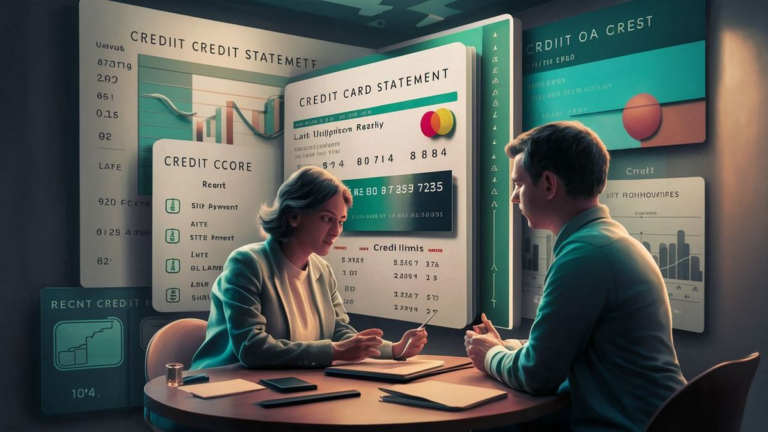Understanding the nuances of credit scores can be a complex endeavor. Many individuals find themselves puzzled when their credit scores take a dip shortly after obtaining a credit card. Let’s delve into some of the potential reasons why this might occur.
Credit Utilization Ratio
One crucial factor affecting your credit score is your credit utilization ratio, which is the proportion of your credit limit that you’re currently using. If you’ve recently acquired a credit card and have utilized a significant portion of your available credit, it can have a negative impact on your credit score. High credit utilization suggests a higher risk to lenders, potentially leading to a decrease in your credit score.
New Credit Inquiries
When you apply for a new credit card, the issuer typically performs a hard inquiry on your credit report. These inquiries can temporarily lower your credit score, albeit to a minor extent. However, if you’ve recently applied for multiple credit cards or loans within a short timeframe, it could signal to lenders that you’re seeking credit urgently, which may be viewed as a red flag.
Length of Credit History
Another aspect to consider is the length of your credit history. If you’ve recently opened your first credit card account, your credit history is relatively short. Credit scoring models often favor individuals with longer credit histories, as they provide a more comprehensive picture of your creditworthiness. Therefore, the introduction of a new credit card may initially lower your score until you establish a more extended track record of responsible credit management.
Impact on Credit Mix
Your credit mix refers to the various types of credit accounts you have, such as credit cards, mortgages, auto loans, etc. Introducing a new credit card can alter your credit mix, potentially affecting your credit score. While having a diverse credit mix is generally beneficial, opening a new credit card account may temporarily disrupt the balance, leading to a slight decrease in your credit score.
Missed Payments
It’s crucial to remember that obtaining a new credit card also comes with the responsibility of making timely payments. Missing payments or making late payments can significantly damage your credit score. If you’ve recently acquired a credit card and failed to manage your payments effectively, it could be a contributing factor to your lowered credit score.
Closing Thoughts
While acquiring a credit card can initially cause a slight dip in your credit score, it’s essential to focus on responsible credit management to mitigate any negative impacts. By maintaining a low credit utilization ratio, making timely payments, and managing your credit responsibly, you can gradually improve your credit score over time.
Understanding Credit Score Fluctuations
Aside from the factors directly related to obtaining a new credit card, there are additional elements that can influence fluctuations in your credit score.
Payment History
Your payment history plays a significant role in determining your credit score. Even if you haven’t recently acquired a new credit card, missed or late payments on existing accounts can lead to a decrease in your credit score. It’s crucial to prioritize timely payments across all your credit accounts to maintain a positive payment history.
Credit Limit Increases
While not directly tied to obtaining a new credit card, receiving a credit limit increase on an existing card can impact your credit score. If your credit card issuer increases your credit limit, it can improve your credit utilization ratio if you maintain the same level of spending. However, if you start using more of your available credit, it could counteract the potential benefits and even lead to a temporary decrease in your credit score.
Frequently Asked Questions
Below are some frequently asked questions related to credit score fluctuations after getting a new credit card:
| Question | Answer |
|---|---|
| Will my credit score always drop after getting a new credit card? | No, not necessarily. While it’s common for there to be a temporary dip in your credit score after acquiring a new credit card, responsible credit management can help mitigate any negative effects and eventually lead to score improvement. |
| How long does it take for my credit score to recover after getting a new credit card? | The timeframe for credit score recovery can vary depending on individual circumstances. Generally, if you maintain good credit habits such as low credit utilization and on-time payments, you may start seeing improvements within a few months. |
| Can closing an old credit card improve my credit score? | Closing an old credit card can potentially affect your credit score, especially if it results in a higher credit utilization ratio or reduces the average age of your credit accounts. It’s essential to weigh the potential consequences before deciding to close a credit card account. |
See also:






